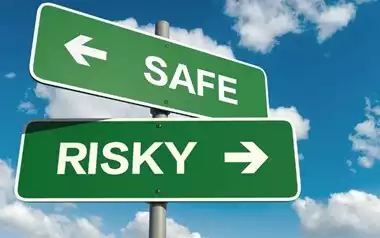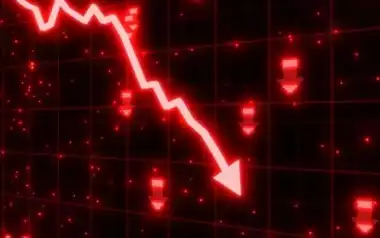Online gambling offers tempting promise. For some, it seems like a ticket to financial freedom. But can it truly support a full-time income? The data reveals a much more grounded picture.
This article breaks down earnings, risks, patterns, and what those excited about this path should understand before chasing a dream.
The lure of steady profits
Stories of professional gamblers making thousands a month grab attention. They often claim to have cracked systems, mastered strategies, and found the holy grail of gambling life. But a closer look shows most face something very different.
While some players report consistent profits, the numbers rarely add up. Most hobbyists or casual players do not come close to replacing a salary. And even among serious players, few earn a living after accounting for losses, time investment, and emotional toll.
Our recommended online gambling sites in the UK.
Examining the big picture
In one survey of serious online gamblers, about 5 percent said they treat it like a full-time job. Yet within that group, only a fraction reported making clear, steady profits. Most fell short after expenses and variance.
Volatility is a key challenge. Wins and losses follow no predictable script. One month a player might double their deposits, the next month lose nearly everything. That rollercoaster is normal. Even those who choose long-term positive expectation games like poker, blackjack, or sports trading must deal with wild swings.

Comparing to other freelance or self-employed income
Comparing to other freelance or self-employed income
Looking at gambling as a career feels like freelancing. Both depend on skill, discipline, and psychological resilience. But gambling adds extra factors: inherent house edges, emotional swings, and risk of ruin.
Where freelancers can quote clients, build contracts and expand, gamblers rely on probability and variance. Overhead is different too: coaching materials, software subscriptions, training, travel to live tournaments. Almost no gambler starts a career without hidden costs that eat into earnings.
The role of skills and knowledge
Yes, skill matters. Professional online poker players, matched-betting experts, and those skilled in betting analytics can find edges. But edges are slim. Many markets are efficient, and over time the house or the crowd wins.
Becoming one of the few to eke out small advantages means constant study, strategy refinement, tracking, and discipline. Even then, income is modest for many. Making it your sole job? Rare and risky.
Time investment vs. reward
To view gambling as work means treating it as work. Playing eight to twelve hours a day, tracking results, reviewing strategy, managing burnout, it looks like any job. But replace the stability of wages with uncertainty.
A serious player might spend 40 or 60 hours a week grinding. Bonus hunting, tournament play, matched-betting or sports speculation. And returns? Some break even. A few profit by a few hundred a month. A tiny minority clear five or six figures annually. But they’re the exception.
Risk and burnout
Stress and burnout are real threats. Losing streaks trigger anxiety. Big wins bring pressure. Mood swings, tunnel vision, isolation, none of that helps performance or mental health.
Players aiming to live off gambling must navigate this pressure. They need strong emotional controls, support systems, and boundaries. Without them, sharp rollers tank fast.

The slippery slope of chasing a dream
The slippery slope of chasing a dream
Many start gambling full-time after a big win or an inspiring story. There’s often a moment when hope outweighs pragmatism. That’s when familiar patterns creep in: cherry-picking bets, ignoring red flags, chasing losses.
That’s no road to stable income. It leads to depletion. Some recover. Others dig deeper. Understanding the real odds and variance is key, but often not enough.
What the data really shows
- Most players lose money over time.
- A tiny fraction profit consistently.
- Profits seldom match traditional full-time income.
- Only highly disciplined, skilled players might maintain earnings.
- Many players burn out or lose control and leave after a few years.
It reads like a filter funnel. Thousands try, few stay, fewer profit, and only a handful thrive long-term.
What online hopefuls should think about
If you want to gamble full-time, pause and reflect:
- Risk tolerance: Can you handle months of losses?
- Financial buffer: Do you have savings or secondary income?
- Emotional strength: Can you cope with fluctuation and stress?
- Supporting routines: Do you have systems for tracking, analysis, rest, exercise?
- Safety nets: Have you budgeted taxes, healthcare, unplanned days off?
Most successful players treat gambling as part of their income mix, not the only source.
How to reduce risk if you still try
- Track every session and bet.
- Always use bankroll management rules.
- Schedule breaks, mental health matters.
- Mix game types to reduce burnout.
- Join communities with shared discipline and transparency.
- Choose best gambling sites that offer fair play tools, analytics, verifiable payouts, and self-control features.
Better sites won’t make you rich, but they can help you stay honest to yourself and better judge your results.
A better approach
Perhaps online gambling works as a side hustle. Earn pocket money. Reinvest slowly. Use profits only as entertainment or to fund learning, not living expenses.
Combine it with freelancing, part-time work, or passive income. Then odds and volatility become manageable.
Can you make a living from online gambling? Technically yes, but only under very tight conditions, and with rare talent or luck. Most players will fall short. Many lose more than they win.
So before saying goodbye to your day job, ask: am I ready for the volatility? Do I have backup plans? Will I treat this like a profession, not a gamble?
If you're serious, proceed with caution. Track everything. Build routines. Stay emotionally fit. And always use best gambling sites that support you with responsible tools and reliable operations.
But remember this: living by the gamble is not a dream. It’s more like working for the unpredictable. And that’s rarely worth the risk.







